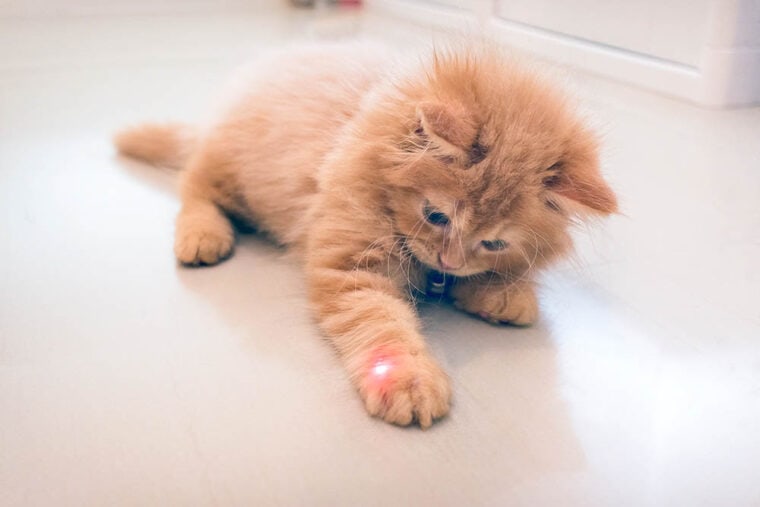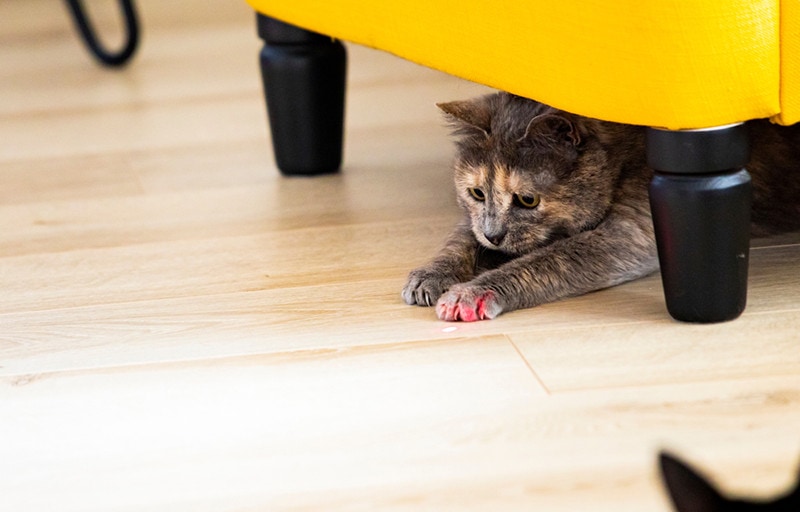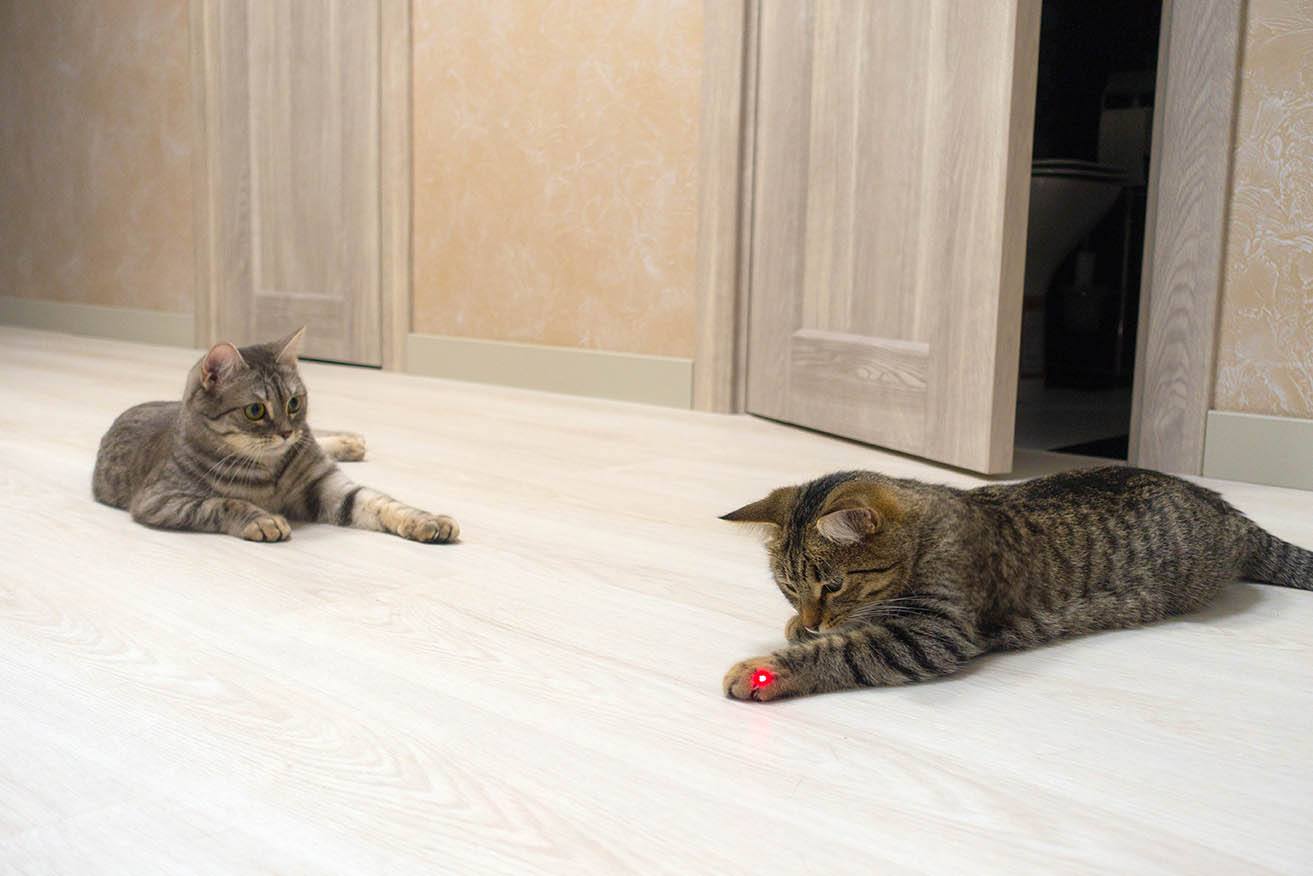
Who here has used a laser pointer to play with a pet? Were you playing with a cat? Why are cats obsessed and less so with other animals? What is it about a tiny red dot that will get some of the chonkiest, sleepiest of house cats up and scrambling for something they can never catch? Speaking of never catching that tiny incessant dot, is it okay to tempt your kitty with a laser, or does that frustrate them unfairly?
We have answers to all this and more in this article, and it doesn’t even require a laser pointer to follow along (but feel free to do so if it brings your cat along for the fun).
Couch Potato Predators
Despite how lazy pet cats are capable of being (their nap schedule is nearly unrivaled in the animal kingdom), sometimes natural instincts just cannot be beaten. While we can’t sit our feline friends down for an interview to tell us why they like to chase a laser, the answer seems to be linked to the fast movement of the laser.
Why We Think Cats Like the Movements of Lasers

1. Prey Movements
Cat species in the wild and the ancestors to our current house cats are all predators. Domestic cats hunt animals smaller than them that are typically fast-moving, a scenario mimicked by a laser. This association with prey kick-starts the prey drive of an otherwise docile kitty.
2. Stimuli
The shared characteristic across popular cat toys is the ability to stimulate a sense or instinct of a cat. Feathers or other items bouncing around on the end of a line to chase, crinkle balls they can bite and kick, even catnip that they can smell and instinctually wish to roll in; all use a cat’s senses or prey drive to stimulate interest.
3. Eye Anatomy
The back of a cat’s eyes has two types of cells that respond to light, rods and cones. Rods are sensitive to light, while cones are sensitive to shapes and movement and help with seeing in low light. These rod and cone cells will provide information to ganglion cells of the retina in the back of the eye, which then travels to the brain.
The more rods or cones an animal has per ganglion cell, the better that type of information is collected and communicated to the brain to use. Cats have approximately four times more cones per ganglion cell than humans do, which means they are fantastic at seeing movement, especially in low light. This makes cats perfectly designed for tracking a small bright light around the room, like from a laser pointer.

Do Other Animals Like Lasers?
They sure do! You can find videos on the internet of just about any predator-type animal becoming interested in moving laser lights. Since this is triggering hunting instincts, the behavior is more likely in a predator, but even a prey species can become curious of the light, and play behaviors are often learned so animals living with other species or exposed to lasers for fun from a young age may also learn to chase them.
Are Laser Pointers Harmful to Cats?
To answer this question, it helps to decide if we mean physical harm or mental.
A great way to hedge your bets and air on the side of caution is to combine playing with a laser and playing with other toys. By assembling piles of cat toys or treats, you can have your cat chase the laser directly into other toys or treats, which then gives them their reward and something to catch.
What Are the Benefits of Laser Pointers?
Our pet cats can be guilty of living their best lives in the closest available sun patch often. It is no easy feat to find ways to convince our furry friends that they want to get up and not just be active but run around for prolonged periods. For many cats, the best way to do this is with lasers (with the bonus that we don’t have to participate in the exercise with them if we don’t want to).
Lasers can also be used in training, such as asking cats to climb into and positively interact with carriers. They can help with leash training similarly, and they’re quiet (other than the telltale sounds of a scrabbling cat) and pose little health risk to the cat as long as the play area is safe. Items your cat is willing to interact with that can stimulate them mentally are nothing to turn up your nose at!
Conclusion
While there are a few concerns to watch for, lasers can make a great addition to your toy box for your cat. Thanks to their super sight, quick reflexes, and strong hunting instincts, cats and lasers are a great match.
Featured Image Credit: Seika Chujo, Shutterstock






